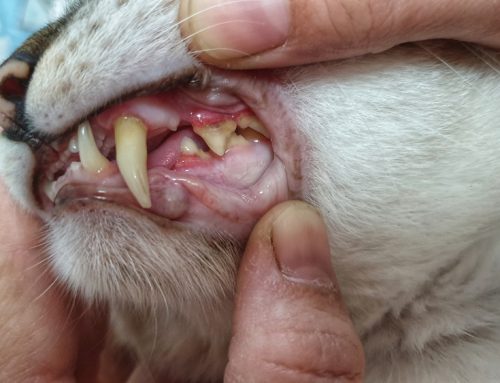Routine wellness care not only is crucial to your pet’s health and well-being but also can protect them from many harmful diseases. Our Burlington Veterinary Center team believes every pet deserves access to gold-standard care, and we explain what diseases can be prevented by regular wellness care.
Viral diseases can be prevented by regular veterinary wellness care
Keeping your pet up to date on their vaccinations is an important part of their health care plan. Vaccines stimulate an immune response, so the body can properly fight future infections. Puppies and kittens typically start vaccines at 6 to 8 weeks of age and need boosters every two to four weeks until they are 16 to 18 weeks old. Adult pets need vaccines every one to three years, depending on their lifestyle and disease risk.
Core vaccines protect pets against many harmful, infectious viral infections, including:
- Canine distemper virus
- Canine parvovirus
- Canine adenovirus-2
- Rabies
Core vaccines for cats help prevent viral infections, including:
- Feline panleukopenia virus
- Feline viral rhinotracheitis
- Feline calicivirus
- Rabies
- Feline leukemia virus, which is considered a core vaccine only for kittens
Dental disease can be prevented by regular veterinary wellness care
Dental disease is prevalent in the pet population, affecting over 80% of dogs 3 years and older and 50% to 90% of cats older than 4 years. Periodontal bacteria can have severe consequences for your four-legged friend, including painful, bleeding gums, loose or missing teeth, serious tooth root infections, and complications associated with your pet’s eyes and nasal cavity. The bacteria can also cause organ damage if systemic infection occurs.
During a routine wellness visit, we evaluate your pet’s teeth to determine if they require a professional veterinary dental cleaning, which is typically needed about once a year. We also recommend that you brush your pet’s teeth daily using pet-specific toothpaste and toothbrush.
Obesity can be prevented by regular veterinary wellness care
Pet obesity is an epidemic in the United States. According to the Association for Pet Obesity and Prevention, veterinary care providers classify 59% of dogs and 61% of cats as overweight or obese. This is much more than a cosmetic issue, since excess weight predisposes your pet to serious conditions such as cancer, arthritis, diabetes, and kidney disease.
Our team evaluates your pet’s body conditioning score during their annual or bi-annual wellness examination and provides advice that will help your pet maintain a healthy weight. If they are already overweight, we can devise a safe weight loss program.
Heartworm disease can be prevented by regular veterinary wellness care
Heartworms are transmitted by infected mosquitoes, and a bite from a single pesky insect can significantly damage your pet’s heart and lungs. While heartworm disease is most prevalent in southern states, Connecticut pets can also be infected. Signs typically don’t manifest until the condition is advanced, which means the pet’s health is already significantly compromised when signs are obvious. All pets are susceptible to heartworm disease, including cats who live only indoors. Mosquitoes are excellent at finding their way inside, which leaves all pets vulnerable to infection.
Fortunately, heartworm disease is easily preventable with a year-round heartworm prevention medication. You can easily provide this necessary protection, because different administration options are available, including:
- Chewable pills — For pets who never turn down a treat, flavored chewable pills given once a month can protect against heartworms.
- Topical applications — If your pet has a discerning palate and is skeptical of new treats, a topical spot-on product applied monthly may be a better option.
- Injectables — For owners who have trouble administering medication to their pet or who easily forget monthly dosing, your veterinarian can administer an injection every 6 to 12 months to protect against heartworms. This option is available only for dogs.
Tick-borne diseases can be prevented by regular veterinary wellness care

Lyme disease and other tick-borne illnesses that can cause debilitating issues for your pet are common in Connecticut. Signs include lethargy, swollen lymph nodes, joint pain, shifting limb lameness, and decreased appetite. In some cases, the infection can harm your pet’s organs and cause blood clotting problems. Ticks are active year-round, so providing year-round flea and tick protection is essential for protecting your four-legged friend. Ask our team for the best preventive medications for your pet.
Protect your pet from these preventable diseases by providing appropriate routine wellness care. If your pet is due for their vaccines or you have questions about the preventive product best for them, contact our Burlington Veterinary Center team.







Leave A Comment